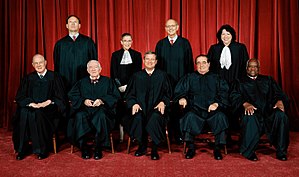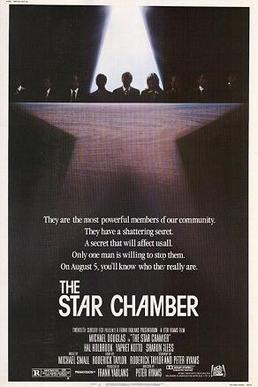 By BitcoDavid
By BitcoDavid
A huge digest post is in the can, for later on today. And I’ve been working on tons of projects offsite, that I think you will find interesting and worthy. But I wanted to get this up in time, and on its own.
Today way back in 1966, the SCOTUS ruled for the defendant in the landmark case, Arizona vs. Miranda. The controversial ruling didn’t give suspects any new rights, it merely stated that those Constitutional rights that already existed would be made available at the time of arrest, and that police were mandated to make those rights known, before any questioning could take place.
In the 47 years since its enactment, Miranda has saved many an innocent person from false confession and wrongful imprisonment. According to the Star Chamber crowd, it has also helped many a skel beat justice – and while that may be true, it’s a trade I gladly make.
In 2010, the Court amended the classic decision. In a 7-2 opinion, with Justice Ruth Bader Ginsburg writing for the majority, it was decided that while you still have the right to remain silent, now you need to inform the police that you are exercising that right, immediately. And there’s a catch. If, at any time during an interrogation, you break your silence – you are tacitly ceding further use of it. This is important.
“Did you shoot that helpless little old lady?”
“I have the right to remain silent, and I’m exercising that right.”

The United States Supreme Court, the highest court in the United States, in 2009. (Photo credit: Wikipedia)
“Yeah, yeah. But did you shoot her?”
“I have the right to etc, etc.”
“Want a cup of coffee?”
“Hellz yeah!”
Say so long to your right to remain silent. The Court ruled that you need to invoke your right to remain silent, immediately upon receipt of the warning, and that your silence must be consistent throughout your entire time in custody.
You have the right to an attorney during questioning – but again, thanks to the 2010 ruling, you need to inform the police immediately

Border Patrol agent reads the Miranda rights to a Mexican national arrested for transporting drugs (U.S. Customs and Border Protection – United States Department of Homeland Security) (Photo credit: Wikipedia)
upon your arrest that you’re lawyering up, and there’s no limit on how long they can hold you, before your lawyer is contacted. Furthermore, and again this is important. If you’re arraigned and released, you only have 2 weeks to inform the court that you need a public defender assigned to your case.
Now, I honestly don’t know how many of you have ever spent any time in interrogation – but I can tell you this. There’s nothing you want more – than for it to end. Cops know that – and they use it against you. By the time they’re done, you’ve confessed to everything since the Crucifixion.
We need these rights. We – the innocent need them. Miranda wasn’t designed to protect the guilty, it was designed to protect you.
But, the fact remains that thanks to the 1966 ruling, you have rights in arrest and interrogation, that prior to that – although they did exist – were largely ignored. And next time you tell a cop, “I have the right to remain silent,” say thank you to Ernesto Miranda and his struggle with Arizona.
BitcoDavid is a blogger and a blog site consultant. In former lives, he was an audio engineer, a videographer, a teacher – even a cab driver. He is an avid health and fitness enthusiast and a Pro/Am boxer. He has spent years working with diet and exercise to combat obesity and obesity related illness.
Related articles
- Supreme Court Says Never Speak to a Police Officer (bikersofamerica.blogspot.com)
- Common misunderstandings about Miranda warnings (constitutioncenter.org)
- Tsarnaev: Right to Counsel, Not Miranda, Is the Key (emptywheel.net)
- The FBI Did Not Need a Miranda Exception to Question Tsarnaev About Ticking Bombs (reason.com)
- The Collapse In The Rule Of Law (thedailysheeple.com)
- Texting, Chat Rooms and the Deaf Sex Offender (deafinprison.com)
- Militarized Cops and Drug War Victims (deafinprison.com)
- There But For the Grace of God… (deafinprison.com)
- English: A Major Obstacle For the Deaf Suspect and Deaf Inmate (deafinprison.com)
- Third Grade Reading Level: What Does It Mean for An Adult Deaf Suspect? (deafinprison.com)



Pingback: Super Huge Digest Post – 6/14/2013 | deafinprison